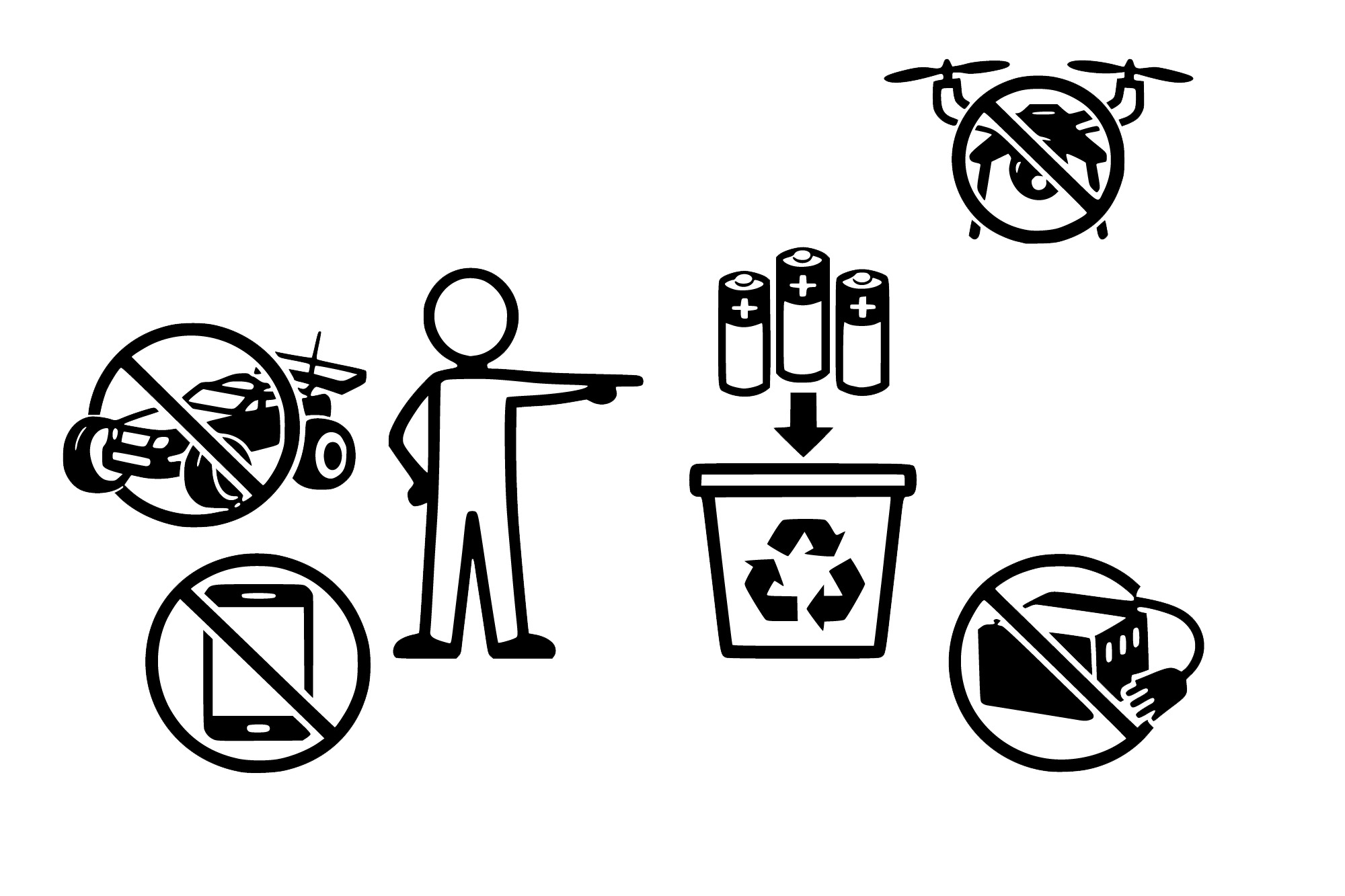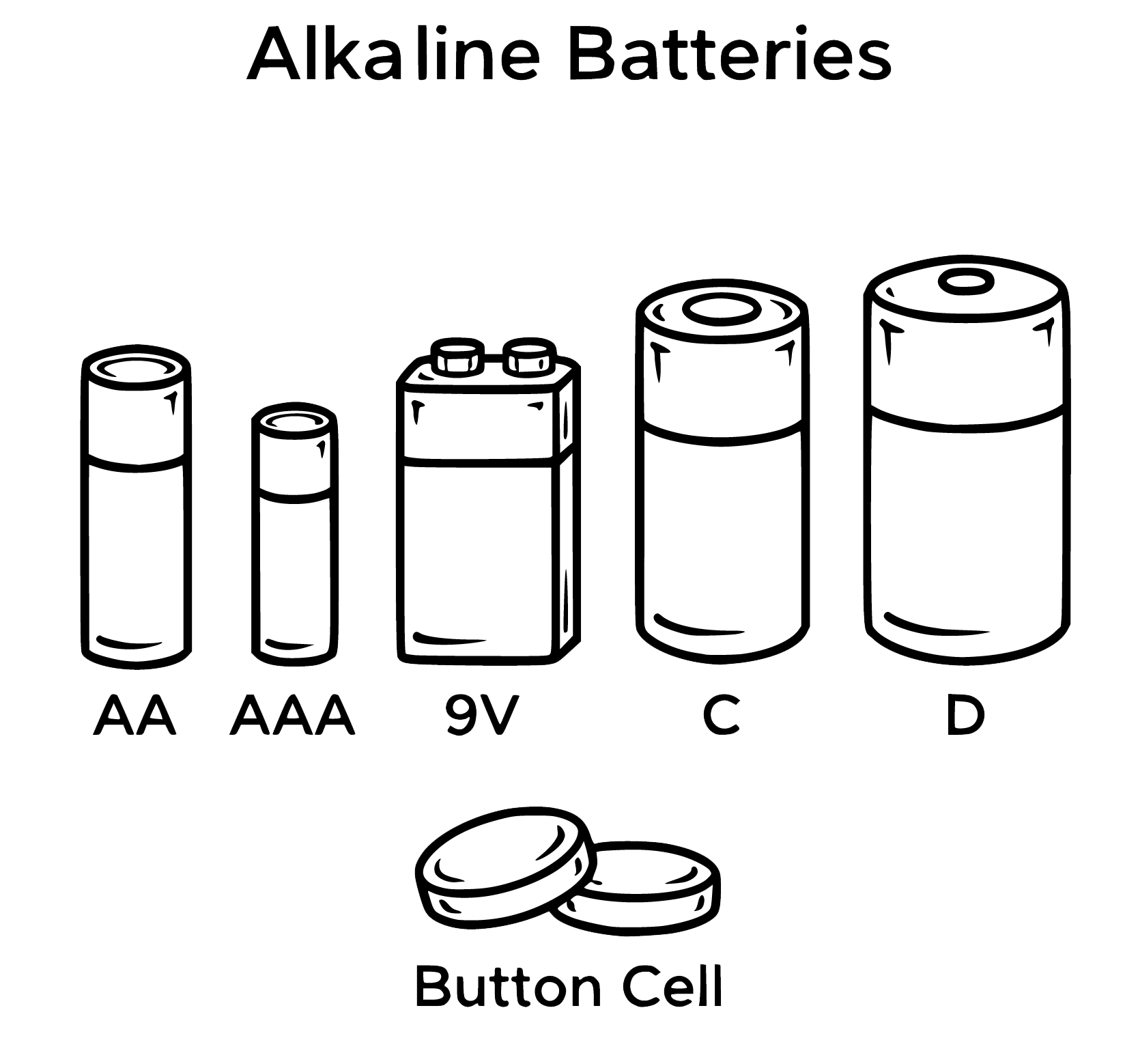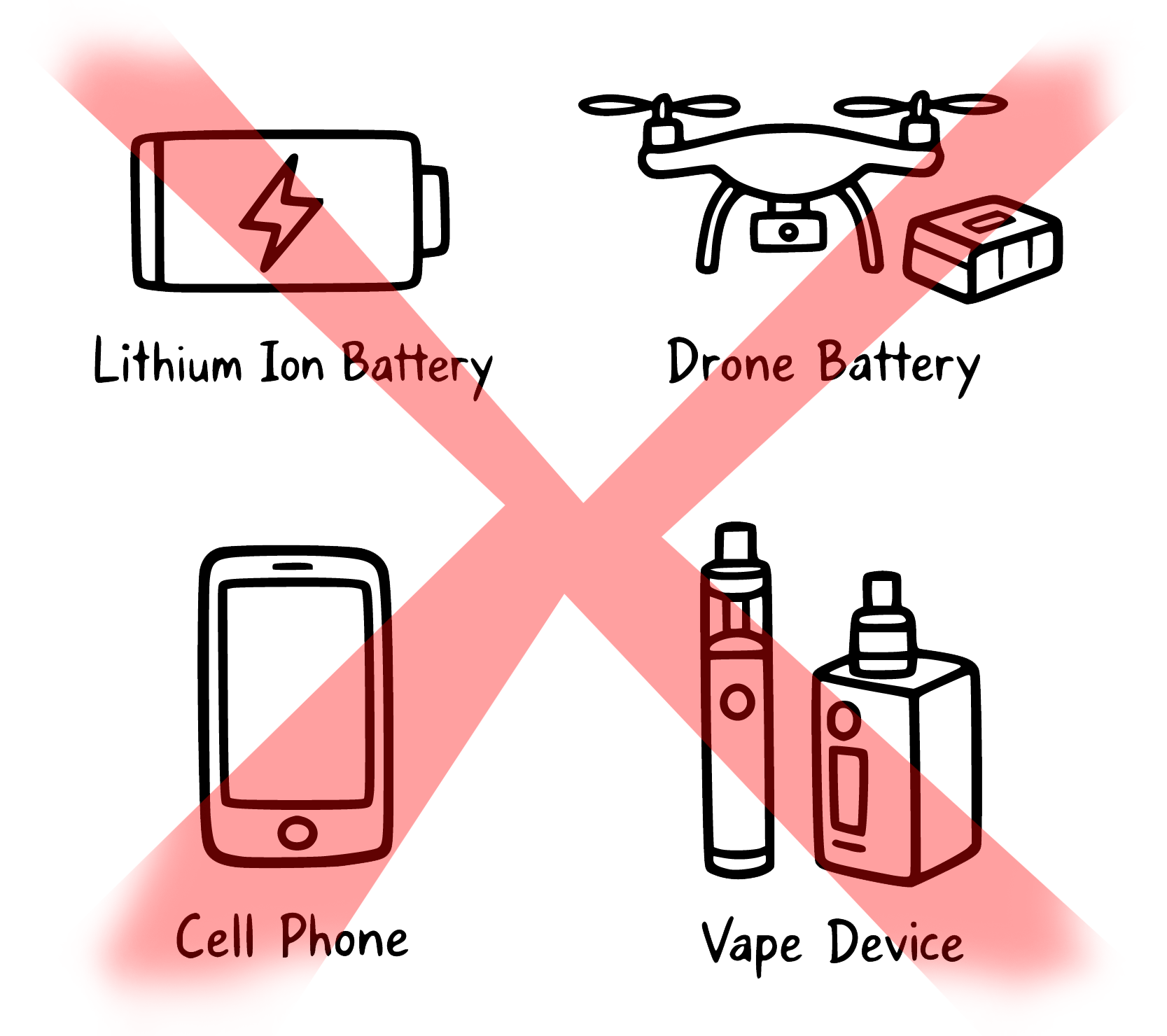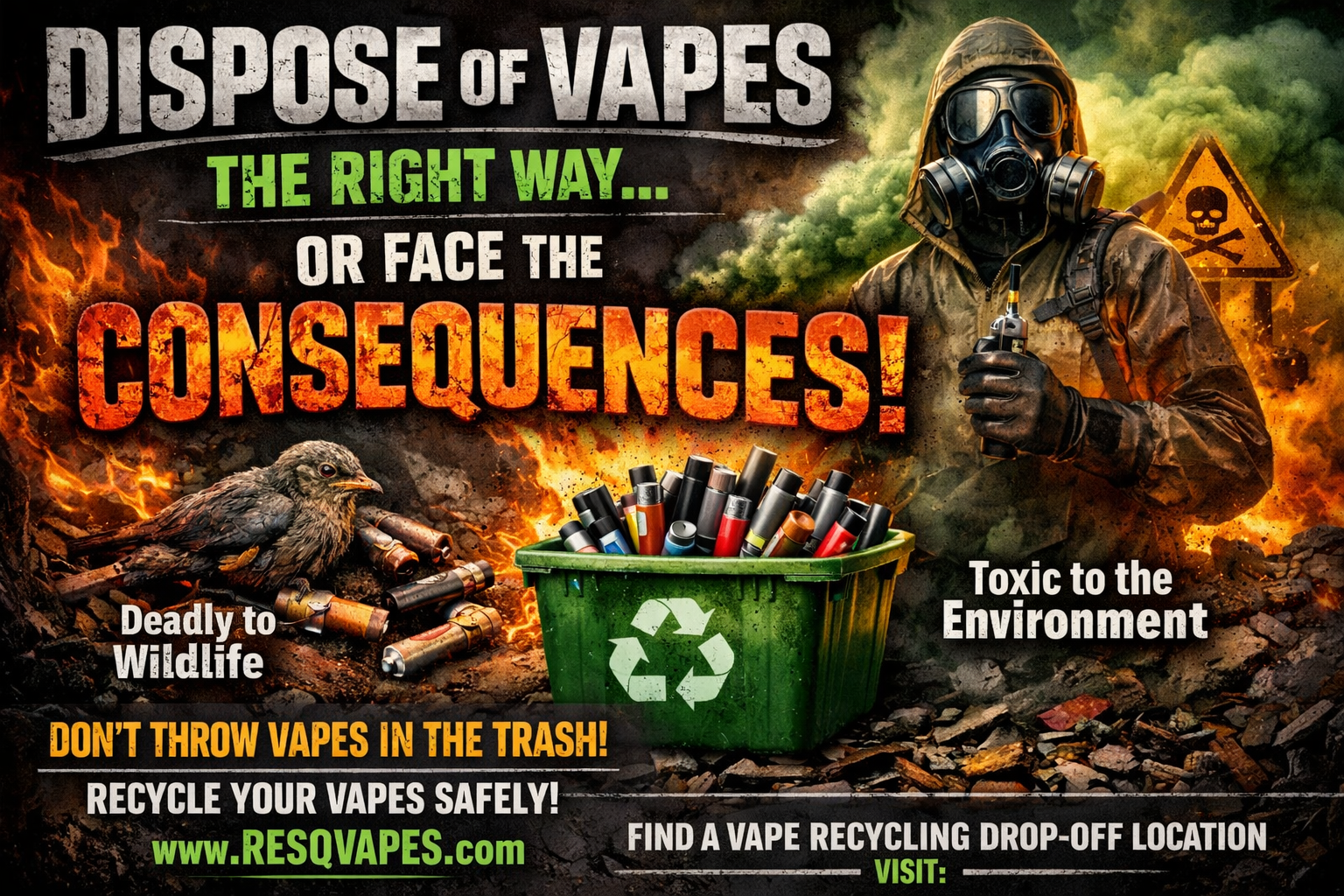Battery Criteria
(Single-Use Alkaline ONLY)
Did you know?
Household AA, AAA, C, and D “batteries” are actually single cells. A true battery contains multiple cells connected together (like a 9V, which has 6–8 cells inside).
Non-Alkaline Battery Recycling Guidance
-
Call2Recycle Locator - A trusted resource for finding drop-off points for rechargeable and single-use batteries.
U.S. EPA Battery Recycling Guide - Provides information on safe battery disposal and recycling options.
Earth911 Recycling Search - A comprehensive tool to find local recycling centers for various battery types.
-
ResQ does not accept non-alkaline batteries (e.g., lithium-ion, nickel-cadmium, nickel-metal-hydride, or lead-acid). We provide these external links for your convenience and do not endorse, control, or assume responsibility for the services, locations, or practices of these third-party organizations. Please contact the recycling facility directly to confirm their acceptance policies, hours, and any specific requirements (e.g., taping battery terminals or weight limits).
-
ResQ is not liable for any issues, damages, or consequences arising from the use of third-party recycling services or drop-off locations. Always handle and transport batteries safely, following local regulations and guidelines to prevent risks such as fires or leaks.
Essential Battery Wisdom
“Demystify batteries, grasp their language, and recycle responsibly for a sustainable future. Start your journey now!”











